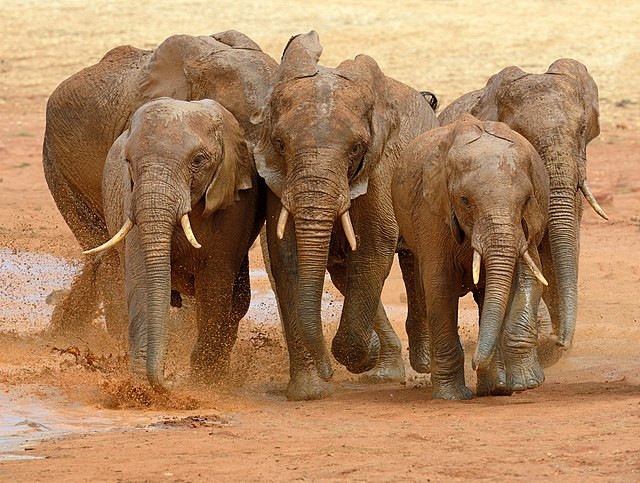In a groundbreaking discovery, researchers have found that elephants address each other by unique, individual names, suggesting a complex level of social communication previously thought to be exclusive to humans. This study, conducted on African savanna elephants in Kenya, is the first to show that non-human animals use invented names rather than imitated sounds for specific individuals.
The study, published in the journal Nature Ecology & Evolution, utilized advanced artificial intelligence algorithms to analyze the vocalizations of two wild elephant herds. These herds, residing in Kenya's Samburu National Reserve and Amboseli National Park, provided a rich data set spanning over three decades from 1986 to 2022. The research team, led by Michael Pardo, a behavioral ecologist at Colorado State University, identified 469 distinct calls, with 101 elephants issuing and 117 receiving these calls.
"Our analysis not only shows that elephants use specific vocalizations for each individual, but that they recognize and respond to calls directed at them while ignoring those meant for others," said Pardo. This finding indicates a level of abstract thought and social complexity in elephants, comparable to that seen in humans.
Unlike dolphins and parrots, which mimic the sounds of others to address them, elephants appear to invent unique names for each member of their social group. These names are primarily used by adult elephants and are often employed when calling out to young ones over long distances. This suggests that it takes years for elephants to learn and use these specific calls effectively.
The researchers played recordings of elephant calls to see how individual elephants would respond. When an elephant heard its name, it reacted positively and energetically, whereas it showed little interest when other names were played. This selective response underscores the elephants' ability to recognize and respond to their own names, much like humans do.
The study's senior author, George Wittemyer, emphasized the significance of these findings. "The evidence provided here that elephants use non-imitative sounds to label others indicates they have the ability for abstract thought," he said. This ability points to a sophisticated level of communication and social interaction within elephant herds.
The implications of this study are profound, suggesting that elephants possess cognitive abilities that support complex social structures. Frank Pope, CEO of Save the Elephants, remarked on the broader implications: "Despite our differences, humans and elephants share many similarities such as extended family units with rich social lives, underpinned by highly developed brains. That elephants use names for one another is likely only the start of the revelations to come."
The researchers also explored the evolutionary origins of this name-calling ability. Elephants diverged from primates and cetaceans approximately 90 million years ago, indicating that this sophisticated communication system evolved independently in different species. The study calls for further research into how these abilities developed and what other species might share this trait.
Interestingly, the study found that mother elephants frequently addressed their calves by name, hinting that these names might be learned from maternal figures. This form of communication likely plays a crucial role in maintaining social bonds and coordinating group activities, especially in the vast landscapes elephants inhabit.
Karl Berg, a biologist at the University of Texas Rio Grande Valley, praised the study's methodology and findings. "The results of those playback experiments looked very convincing," Berg said. "I have no doubt that they're addressing them with these unique labels."
The study opens up new avenues for understanding animal communication and intelligence. As researchers continue to decode the specific acoustic features that constitute an elephant's name, they aim to answer more complex questions. For instance, do elephants use these names when the addressed individual is not present, or do they talk about each other in the third person?






